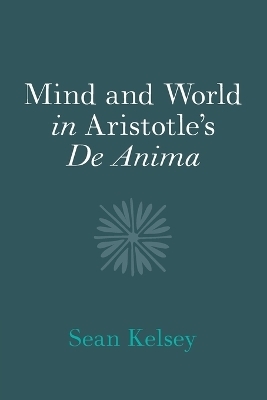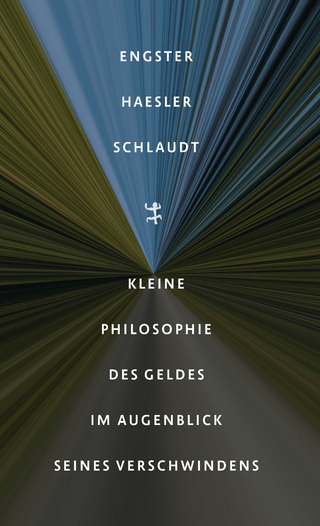
Mind and World in Aristotle's De Anima
Seiten
2023
Cambridge University Press (Verlag)
978-1-108-96587-3 (ISBN)
Cambridge University Press (Verlag)
978-1-108-96587-3 (ISBN)
Intended for scholars and advanced students of the De Anima, this original study asks why (in Aristotle's view) it is in human nature to know reality, and follows the thread of this question–and its answer–throughout the work.
Why is the human mind able to perceive and understand the truth about reality; that is, why does it seem to be the mind's specific function to know the world? Sean Kelsey argues that both the question itself and the way Aristotle answers it are key to understanding his work De Anima, a systematic philosophical account of the soul and its powers. In this original reading of a familiar but highly compressed text, Kelsey shows how this question underpins Aristotle's inquiry into the nature of soul, sensibility, and intelligence. He argues that, for Aristotle, the reason why it is in human nature to know beings is that 'the soul in a way is all beings'. This new perspective on the De Anima throws fresh and interesting light on familiar Aristotelian doctrines: for example, that sensibility is a kind of ratio (logos), or that the intellect is simple, separate, and unmixed.
Why is the human mind able to perceive and understand the truth about reality; that is, why does it seem to be the mind's specific function to know the world? Sean Kelsey argues that both the question itself and the way Aristotle answers it are key to understanding his work De Anima, a systematic philosophical account of the soul and its powers. In this original reading of a familiar but highly compressed text, Kelsey shows how this question underpins Aristotle's inquiry into the nature of soul, sensibility, and intelligence. He argues that, for Aristotle, the reason why it is in human nature to know beings is that 'the soul in a way is all beings'. This new perspective on the De Anima throws fresh and interesting light on familiar Aristotelian doctrines: for example, that sensibility is a kind of ratio (logos), or that the intellect is simple, separate, and unmixed.
Sean Kelsey is Associate Professor of Philosophy at the University of Notre Dame. His work has appeared in Ancient Philosophy, Apeiron, Oxford Studies in Ancient Philosophy, Phronesis and several edited volumes.
Introduction; Part I. Questions: 1. Objectives; 2. Problems; 3. Solutions; Part II. Angles: 4. Affinities; 5. Measures; Part III. Proposals: 6. Sensibility; 7. Intelligibility; 8. Intelligence; Conclusion.
| Erscheinungsdatum | 17.10.2023 |
|---|---|
| Zusatzinfo | Worked examples or Exercises |
| Verlagsort | Cambridge |
| Sprache | englisch |
| Themenwelt | Geisteswissenschaften ► Philosophie ► Metaphysik / Ontologie |
| Geisteswissenschaften ► Philosophie ► Philosophie Altertum / Antike | |
| ISBN-10 | 1-108-96587-3 / 1108965873 |
| ISBN-13 | 978-1-108-96587-3 / 9781108965873 |
| Zustand | Neuware |
| Haben Sie eine Frage zum Produkt? |
Mehr entdecken
aus dem Bereich
aus dem Bereich
Buch | Hardcover (2024)
Matthes & Seitz (Verlag)
28,00 €


